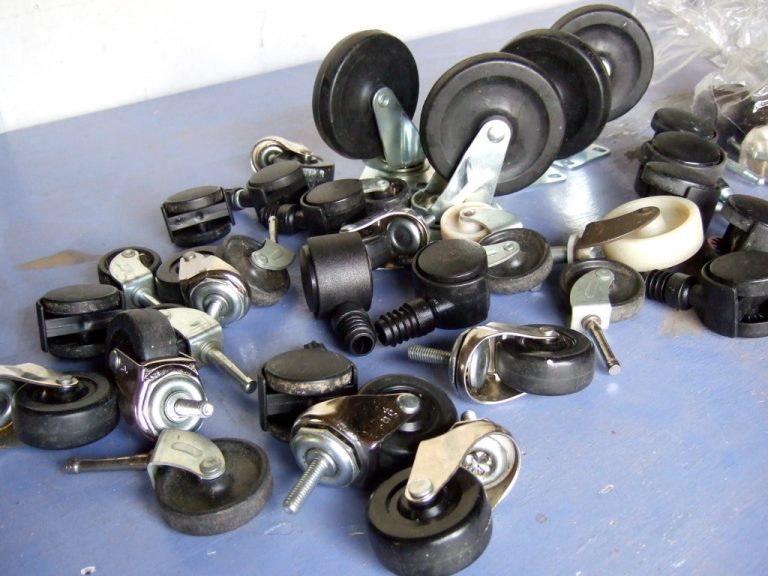Casters are wheels that can be mounted directly to almost any piece of furniture, cabinetry, or machinery to create versatility within the space. They provide ease of mobility as well as shock absorption and protection from damage to floors and backs. Ergonomic movement of your equipment allows you to safely and easily re-configure living and work spaces for maximum comfort, convenience, or efficiency. The quick roll-out makes cleaning a snap. Storage boxes or cabinets that are ready to roll may be utilized as additional space for a variety of purposes, including seating or additional work surfaces. Equipment that is not being utilized may be rolled out of the way, freeing up the space for other purposes. Finding the right caster for the job is not difficult, but there are many to choose from and getting the right one can be a key factor to optimizing that newfound versatility for your shop or home. You Get What You Pay For Sometimes it doesn’t pay to cut corners, and if you are putting your shop space on wheels, it pays to pay a little extra. The quality of the housing and axle assemblies will reflect the durability of the unit in general. The quality and type of wheel will directly affect the ease of your roll and how long the wheels will hold up under use. A failed wheel assembly can not only result in damage to the item on wheels, but to floors, walls, and potential injury to people involved. Taking the time to find the right casters for the job can save time and money later. Caster Characteristics The load rating is the amount of weight that a wheel is able to maintain on a continuous basis. Load ratings for wheel assemblies are generally listed as light (75 to 200 pounds), medium (200 to 300 pounds), heavy (300 to 500 pounds), and industrial (over 500 pounds), depending on the expected weight of the load. Wheel mechanisms may be locking or free-wheeling, fixed-, or swivel-mounted, single- or dual-wheeled. Locking mechanisms stop rolling or swiveling motion as appropriate for Single- or Double-locking casters, respectively. Wheels may be hard, impact resistant, or pneumatic for maximum shock absorption on uneven or difficult terrain. Wheel attachment designs may include a mounting plate that is screwed or bolted to the bottom of the piece or may consist of a pin or leg that is inserted into a receiver hole. Measurements including the diameter of the wheel, radius of the swivel rotation, and overall height from the base of the flange to the outer edge of the wheel should be considered when calculating spacial requirements. Colson Series 1 wheel sets are an easy way to set your environment rolling. They are available in a variety of sizes and configurations to match the needs of your free-wheeling designs. The zinc plating and raceways that are double hardened provide rugged performance and durability. Colson’s multi-temperature grease will maintain lubrication during extreme temperatures. The Performa wheels are chemical-, thermo-, and weather-resistant. They are non-marking, somewhat cushioning, and quiet on hard surfaces. Proper planning, procuring, and placement can give your life a little versatility with a whole lot of ease.





